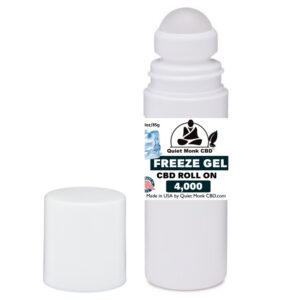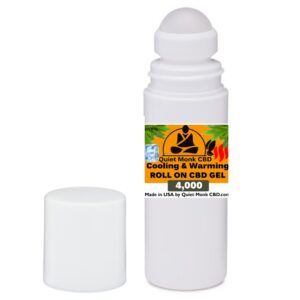
The quick short answer: Cannabis derived terpenes are the essential oils of the plant that have been isolated from the rest of the plants components.
To ensure you’re buying high-quality cannabis products, the best way to verify their quality is by reading third-party lab reports and carefully inspecting terpene profiles and concentrations – specifically looking out for limonene, myrcene and linalool as key indicators of quality products.
These aromatic compounds can add a unique element to the experience of any cannabis strain and work together with cannabinoids to create the entourage effect.
What are terpenes?
Terpenes are aroma compounds found in cannabis plants that give their signature smell and flavor, working hand in hand with cannabidiol (CBD) to produce therapeutic benefits. Many cannabis enthusiasts rely on the terpene profile of a strain to inform their selection process – for instance, Sativa strains often feature higher amounts of limonene and pinene while Indicas typically feature myrcene, linalool, and caryophyllene terpenes than Sativas for instance.
Botanical terpenes derived from safe sources are also an integral component of some cannabis products, being added to distillate that already contains high levels of THC to create an enhanced user experience and ensure consistency.
When selecting cannabis products, it’s essential to take note of both their terpene profile and potency and cannabinoid content. A diverse terpene profile can provide just as much therapeutic value than high concentrations of cannabinoids.
As cannabis consumers demand higher quality and consistency from cannabis brands, cannabis terpene experience has become a top priority. Although sourcing raw botanical terpenes at the ideal quantity and price can be challenging, several companies like Stiiizy are dedicated to producing and distributing 100% cannabis-derived terpenes using an extraction process which preserves all their natural terpenes – providing robust entourage effects and authentic strain flavors that meet consumer expectations.
How do terpenes affect the cannabis plant?

Terpenes are aromatic molecules found in cannabis strains that contribute to their distinct scents and flavors, while also playing an integral part in both psychoactive and therapeutic effects of different cultivars; including either amplifying or mitigating THC’s impact.
Terpenes have been identified in cannabis, with many also found in citrus fruits, herbs and spices. Common cannabis terpenes include limonene, myrcene and pinene being most frequently encountered. Limonene offers fresh citrusy aroma while being an powerful antioxidant which may boost energy and immune system functions; Myrcene provides cannabis strains their earthy and herbal aroma; while pinene’s pine-fir-tree resemblance offers stress relief and relaxation benefits.
Terpenes do not contain psychoactive properties on their own; however, they are believed to enhance the therapeutic effects of cannabinoids through what is known as the entourage effect. Researchers continue exploring how terpenes interact with cannabinoids and other compounds found in our bodies.
Some terpenes, such as alpha- and beta-pinene, are widely known to possess antiviral properties; others, like linalool and camphor could potentially reduce anxiety. Humulene and geraniol may even possess anti-inflammatory effects; however, most studies on terpenes have been performed using animal or test tube models; additional human research will likely be required before definitive results can be confirmed.
How do terpenes affect the human body?
Although cannabinoids like THC and CBD may get most of the spotlight when it comes to cannabis experiences, terpenes play an equally crucial part. Terpenes can shape how high you experience, how you feel during consumption and even what flavors or aromas may be detected during a session.
As more research is completed, preliminary findings show that terpenes can provide therapeutic effects both alone and when combined with cannabinoids to augment them. For instance, limonene has been noted as providing mood-lifting effects and energy boosts while its stress-reductive properties help you relax more. Another popular terpene called linalool provides floral-lavender aromas found in many cannabis strains; studies have also indicated it as helping decrease anxiety levels and improving sleep at night.
Terpenes can not only add therapeutic value, but can also enhance the flavor and entourage effect of cannabis. As a result, demand for full terpene extracts has seen significant increases over the years as cannabis producers seek to provide potency and customized experiences.
Dependent upon its concentration and type, certain terpenes can alter how THC interacts with your brain. Myrcene has been found to provide pain relief while decreasing inflammation; similarly borneol has a woody and herbaceous aroma that has been shown to support anti-inflammatory effects of both THC and cannabidiol.
If you are looking for CBD with terpenes try our topical products like the CBD roll on. Packed full of terpenes and whole plant goodness!
Are terpenes safe?
Terpene profiles in cannabis plants contribute to their unique aroma. When combined with cannabinoids, these terpenes may also offer wellness benefits known as the entourage effect. For example, beta-caryophyllene has been shown to bind CB2 receptors and alleviate anxiety and stress levels, while Limonene has been associated with pain relief.
As cannabis-derived terpenes can cause skin and eye irritation, synthetic ones should be avoided at all costs. Furthermore, undiluted pure terpenes could result in irritation or even toxicity depending on how much is inhaled.
Botanical terpenes may be safer than cannabis-derived ones as their extracting process may degrade them over time, while botanical varieties remain consistent batch after batch, making them more reliable than their cannabis-based counterparts. Cannabis plants can be unpredictable, producing different terpene profiles with each harvest, making it hard to produce products with consistent experiences for customers every time. Choose a reliable product when selecting edibles and other non-smoked forms of ingestion, like gum. Terpenes should be diluted to less than 5% concentration for these products in order to preserve the integrity of their extract and avoid irritating the stomach or eyes.


